第404章 OLIVER GOLDSMITH(7)
Goldsmith has sometimes been represented as a man of genius, cruelly treated by the world, and doomed to struggle with difficulties which at last broke his heart.But no representation can be more remote from the truth.He did, indeed, go through much sharp misery before he had done anything considerable in literature.But, after his name had appeared on the title-page of the "Traveller," he had none but himself to blame for his distresses.His average income, during the last seven years of his life, certainly exceeded 400 pounds a year;and 400 pounds a year ranked, among the incomes of that day, at least as high as 800 pounds a year would rank at present.Asingle man living in the Temple with 400 pounds a year might then be called opulent.Not one in ten of the young gentlemen of good families who were studying the law there had so much.But all the wealth which Lord Clive had brought from Bengal, and Sir Lawrence Dundas from Germany, joined together, would not have sufficed for Goldsmith.He spent twice as much as he had.He wore fine clothes, gave dinners of several courses, paid court to venal beauties.He had also, it should be remembered, to the honour of his heart, though not of his head, a guinea, or five or ten, according to the state of his purse, ready for any tale of distress, true or false.But it was not in dress or feasting, in promiscuous amours or promiscuous charities, that his chief expense lay.He had been from boyhood a gambler, and at once the most sanguine and the most unskilful of gamblers.For a time he put off the day of inevitable ruin by temporary expedients.He obtained advances from booksellers, by promising to execute works which he never began.But at length this source of supply failed.He owed more than 2000 pounds; and he saw no hope of extrication from his embarrassments.His spirits and health gave way.He was attacked by a nervous fever, which he thought himself competent to treat.It would have been happy for him if his medical skill had been appreciated as justly by himself as by others.Notwithstanding the degree which he pretended to have received at Padua, he could procure no patients."I do not practise," he once said; "I make it a rule to prescribe only for my friends." "Pray, dear Doctor," said Beauclerk, "alter your rule; and prescribe only for your enemies." Goldsmith now, in spite of this excellent advice, prescribed for himself.The remedy aggravated the malady.The sick man was induced to call in real physicians; and they at one time imagined that they had cured the disease.Still his weakness and restlessness continued.He could get no sleep.He could take no food."You are worse," said one of his medical attendants, "than you should be from the degree of fever which you have.Is your mind at ease?" "No, it is not," were the last recorded words of Oliver Goldsmith.He died on the third of April 1774, in his forty-sixth year.He was laid in the churchyard of the Temple; but the spot was not marked by any inscription, and is now forgotten.
The coffin was followed by Burke and Reynolds.Both these great men were sincere mourners.Burke, when he heard of Goldsmith's death, had burst into a flood of tears.Reynolds had been so much moved by the news that he had flung aside his brush and palette for the day.
A short time after Goldsmith's death, a little poem appeared, which will, as long as our language lasts, associate the names of his two illustrious friends with his own.It has already been mentioned that he sometimes felt keenly the sarcasm which his wild blundering talk brought upon him.He was, not long before his last illness, provoked into retaliating.He wisely betook himself to his pen; and at that weapon he proved himself a match for all his assailants together.Within a small compass he drew with a singularly easy and vigorous pencil the characters of nine or ten of his intimate associates.Though this little work did not receive his last touches, it must always be regarded as a masterpiece.It is impossible, however, not to wish that four or five likenesses which have no interest for posterity were wanting to that noble gallery; and that their places were supplied by sketches of Johnson and Gibbon, as happy and vivid as the sketches of Burke and Garrick.
Some of Goldsmith's friends and admirers honoured him with a cenotaph in Westminster Abbey.Nollekens was the sculptor; and Johnson wrote the inscription.It is much to be lamented that Johnson did not leave to posterity a more durable and a more valuable memorial of his friend.A life of Goldsmith would have been an inestimable addition to the Lives of the Poets.No man appreciated Goldsmith's writings more justly than Johnson; no man was better acquainted with Goldsmith's character and habits; and no man was more competent to delineate with truth and spirit the peculiarities of a mind in which great powers were found in company with great weaknesses.But the lists of poets to whose works Johnson was requested by the booksellers to furnish prefaces ended with Lyttleton, who died in 1773.The line seems to have been drawn expressly for the purpose of excluding the person whose portrait would have most fitly closed the series.
Goldsmith, however, has been fortunate in his biographers.
Within a few years his life has been written by Mr Prior, by Mr Washington Irving, and by Mr Forster.The diligence of Mr Prior deserves great praise; the style of Mr Washington Irving is always pleasing; but the highest place must, in justice, be assigned to the eminently interesting work of Mr Forster....